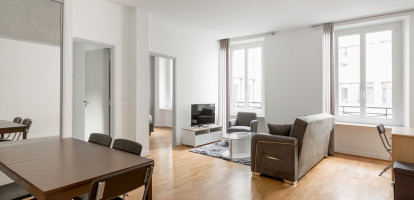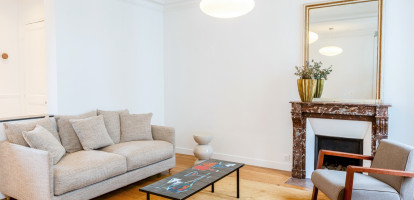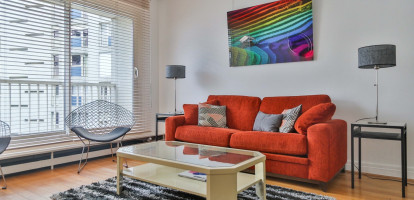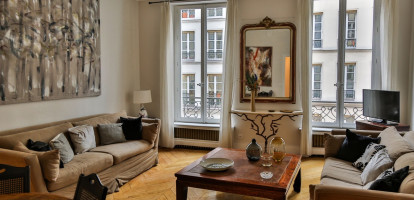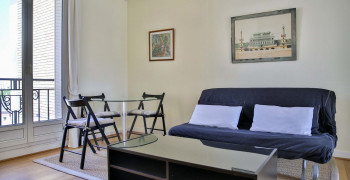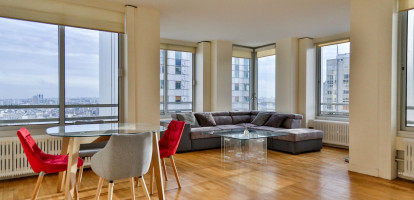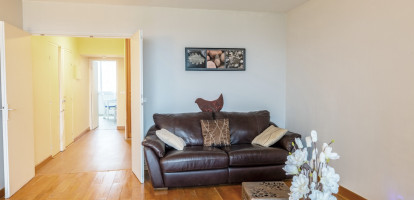For expatriate property owners in France, understanding rental income taxation is crucial for maximizing profitability and ensuring compliance. The French tax system offers different fiscal regimes that impact how rental income is declared and taxed. Choosing the right tax regime can have a big impact on your rental income. This blog will help you understand how taxation applies under the Code Civil Lease and will help you make informed financial decisions.
Understanding Tax Regimes for Rental Income
When renting out a property under the Code Civil lease, property owners can choose from several taxation options, depending on factors such as whether the property is rented furnished or unfurnished and the rental income level. Here are the key tax regimes:
Micro-BIC: A Simplified Regime
- The Micro-BIC (Micro-Bénéfices Industriels et Commerciaux) regime applies to furnished rentals.
- It offers a 50% tax allowance on rental income, automatically deducting 50% of your gross income for 'rental-related expenses' without requiring an itemization.
- Ideal for property owners with low expenses or smaller portfolios generating annual rental revenues under €77,700.
Real Regime (Régime Réel): Deducting Actual Expenses
If your rental income exceeds the Micro-BIC threshold or you have significant deductible costs exceeding the 50% allowance of the Micro-BIC, the Régime Réel allows you to offset real expenses, including:
- Mortgage interest
- Maintenance and repairs (e.g., plumbing, painting)
- Depreciation on the property and furniture
- Property management fees (including services like Paris Rental's)
Tip: Keep meticulous records—every receipt counts!
LMNP & LMP: Furnished Rental Classifications
The Loueur en Meublé Non Professionnel (LMNP) or Loueur en Meublé Professionnel (LMP) status applies to furnished rentals.
LMNP: Non-Professional Furnished Rental
The LMNP (Loueur en Meublé Non Professionnel) status is designed for landlords who rent out furnished properties but do not qualify as professional landlords. It offers several tax advantages:
Key Benefits of LMNP:
- Tax Advantages: Rental income can be offset against depreciation and expenses, often reducing taxable income.
- Exemption from the CFE (Business Tax).
- Rental Deficit Carryforward: If rental expenses exceed rental income, the deficit can be carried forward for up to 10 years, but only against future furnished rental income. For example, suppose your LMNP rental expenses exceed your rental income by €5,000 this year. In that case, you can carry this deficit forward and deduct it from your future furnished rental income over the next 10 years, reducing your taxable income in those years.
Eligibility Criteria for LMNP:
To qualify for LMNP, you must meet at least one of these conditions:
✔ our annual rental income must not exceed €23,000.
✔ Your rental income is less than 50% of your total household income.
Social Security Contributions for LMNP:
As a non-professional furnished rental landlord, you must pay social security contributions of 17.2% of rental income.
LMP: Professional Furnished Rental
The LMP (Loueur en Meublé Professionnel) status applies to landlords whose rental income exceeds a certain threshold. While it comes with additional tax and social security obligations, it also provides greater financial benefits.
Key Benefits of LMP:
- Offsetting Rental Deficits: Losses from rental activities can be offset against overall taxable income with no time limit. For example, suppose your furnished rental business under LMP incurs a €10,000 loss this year. In that case, you can deduct this amount from your total taxable income (e.g., salary or other earnings), reducing your overall tax burden.
- Capital Gains Tax Exemption: Under certain conditions, landlords can be fully or partially exempt from capital gains tax when selling their rental property.
Eligibility Criteria for LMP:
To qualify for LMP, you must meet both of these conditions:
✔ Your annual rental income exceeds €23,000.
✔ Your rental income is more than 50% of your total household income.
Capital Gains Tax Exemption for LMP
If you hold LMP status, you may qualify for a full or partial exemption on capital gains tax when selling your property:
✅ Full exemption if:
- You have operated as a professional furnished rental landlord for at least 5 years.
- Your rental income for the last two years was below €90,000 (excluding tax).
✅ Partial exemption if:
- Your rental income falls between €90,000 and €126,000 (excluding tax).
Social Security Contributions for LMP:
As a professional furnished rental landlord, your social security contributions depend on your business structure:
- Micro-entrepreneur: 22% of rental income.
- Sécurité Sociale des Indépendants (SSI): Up to 43% of profits (rental income after deducting expenses) may be required.
Declaration Obligations for Landlords
Declaring Rental Income in France
All French residents and non-residents who generate rental income from a property located in France must declare this income to the French tax authorities, regardless of their country of tax residence.
Rental income is reported on the annual tax return, using specific forms depending on the chosen tax regime (e.g., Micro-BIC or Régime Réel for furnished rentals). Failure to declare rental income can result in penalties and back taxes.
Avoiding Double Taxation
International property owners should review bilateral tax treaties between France and their home country to determine how their rental income is taxed. Many treaties include tax credits or exemptions, ensuring that landlords are not taxed twice on the same income—once in France and again in their country of residence. Consulting a tax professional can help optimize tax obligations and ensure compliance with both jurisdictions.
Annual Property Declaration in France
Under recent regulations, all property owners in France, whether residents or non-residents, are now required to declare their property annually to the French tax authorities.This declaration includes details about the occupation status of the property—whether it is vacant, occupied, or rented and by whom: the owner themselves, tenants, or even guests for free, and to fill in the identity of the occupants and the period concerned.
The purpose of this requirement is to ensure accurate taxation, particularly for properties subject to housing taxes (taxe d’habitation) or other local levies. Failure to comply with this obligation may lead to penalties. Property owners should complete this declaration through their personal online tax account (impots.gouv.fr) by the specified deadline each year.
How to Optimize Rental Income Taxation
One of the most effective ways to optimize rental income taxation is by structuring ownership and expenses strategically.
Optimize Taxation with an SCI (Société Civile Immobilière)
Setting up an SCI (Real Estate Civil Company - Société Civile Immobilière) can be highly beneficial for property owners and expatriate owners as well, looking to manage their real estate assets efficiently. One of the primary advantages of an SCI is its ability to separate personal and rental property ownership, making taxation and future inheritance planning easier to manage.
For tax optimization, an SCI allows owners to choose between IR (Impôt sur le Revenu), where rental revenues are taxed as part of personal income or IS (Impôt sur les Sociétés), where the company itself is taxed, potentially reducing taxable income through reinvestments and deductible expenses. This flexibility enables expatriate landlords to structure their tax liabilities to minimize their overall burden.
Additionally, an SCI simplifies succession planning by allowing property shares to be gradually transferred to heirs, thereby avoiding heavy inheritance taxes on direct property transfers, which can reach up to 60% for non-relatives and up to 45% for direct relatives in France. This makes it an excellent solution for expatriates who want to ensure the smooth transmission of their real estate assets to future generations while benefiting from more favorable tax conditions.
Maximize Savings Through Tax Deductions
To reduce taxable rental income, property owners can deduct various expenses, making it essential to track costs effectively. Some key deductible expenses include property tax, insurance costs, maintenance and renovation expenses, and mortgage interest (if opting for the Régime Réel). Properly managing these deductions can significantly reduce tax liabilities and improve overall rental profitability.
How Paris Rental and ANB Capital Can Help
Paris Rental's sister company, ANB Capital, specializes in the creation and management of real estate investment structures, helping property owners develop and enhance their real estate assets. We assist in structuring rental investments, especially under the Code Civil lease framework, to optimize tax efficiency, while ANB Capital offers solutions for long-term real estate asset growth and management.
Proper tax planning is essential for expatriate property owners renting under the Code Civil lease. Given the complexities of French tax law, seeking guidance from a specialized accountant or real estate expert is highly recommended. Paris Rental is here to assist in optimizing your rental investment in Paris, ensuring a smooth and profitable experience in the Parisian real estate market.

Editor: Siyi CHEN



 Français
Français


